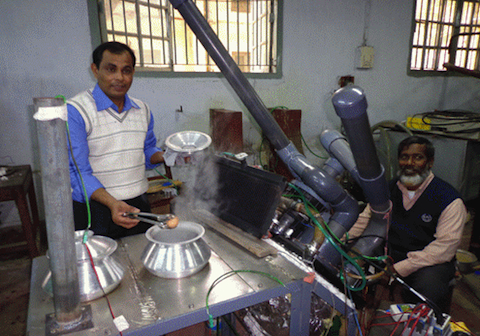
A few days before Christmas, a milestone of sorts was reached at the Bangladesh University of Engineering and Technology: for the first time ever, a few eggs were cooked on a kerosene stove. This was significant not because of the quality of the meal produced, but rather because the stove generated eight watts of electricity while operating—enough to light up a pair of LED lamps. This feat has been a longtime goal of the Score-Stove Project, which aims to create the hardware necessary to convert the excess energy of cooking into usable electricity. Sounds easy enough, but it has proven quite tough to do in a cost-effective manner—the project has a targeted price-point of around $35 per stove (PDF).
The Bangladeshi prototype appears fairly cumbersome at this point, but perhaps a mass-market version is no longer a total pipe dream. That progress is a testament to the dedication of geeks who labor in anonymity, yet are tackling challenges much more difficult than those faced by builders of apps and designers of tablets. Their stories deserve a much wider audience, to remind us that fantastic technological innovation isn’t a phenomenon confined to predictable precincts.


Like gas stations in rural Texas after 10 pm, comments are closed.